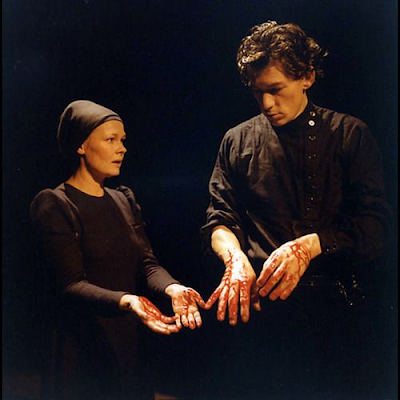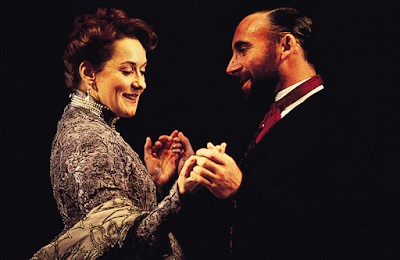1/ You know what, 1580s-1630s plays are bonkers. But before we get there, let’s talk about the poetry.
In 17th century’s English dramatic poetry, one may say that Webster is second only to Shakespeare—perhaps I don’t know what I’m talking about, but David C. Gunby calls him “a tragedian second to only Shakespeare” in my copy and I do love Webster’s poetry the most among Shakespeare’s contemporary playwrights. His best play is still The Duchess of Malfi, but The Devil’s Law-Case has many great passages:
“CONTARINO […] For women’s resolutions in such deeds,
Like bees, light oft on flowers, and oft on weeds.”
(Act 1 scene 1)
Or:
“CAPUCHIN For pity’s sake, you that have tears to shed,
Sigh a soft requiem, and let fall a bead
For two unfortunate nobles, whose sad fate
Leaves them both dead, and excommunicate:
No churchman’s prayer to comfort their last groans,
No sacred sod of earth to hide their bones;
But as their fury wrought them out of breath,
The canon speaks them guilty of their own death.”
(Act 2 scene 3)
Or:
“ROMELIO […] O how this wicked world bewitches,
Especially made insolent with riches!
So sails with fore-winds stretch’d, do soonest break,
And pyramids a’th’top are still most weak.”
(ibid.)
It’s amusing that Webster gives these lines to such a heartless fiend like Romelio.
2/ There are some funny bits. For example, Crispiano, a lawyer, prefers money to “wenching”:
“CRISPIANO Wenching? O fie, the disease follows it;
Beside, can the fing’ring taffetas, or lawns,
Or a painted hand, or a breast, be like the pleasure
In taking a client’s fees, and piling them
In several goodly rows before my desk?...”
(Act 2 scene 1)
What a nutter.
“CRISPIANO Come, come, leave citing other vanities;
For neither wine, nor lust, nor riotous feasts,
Rich clothes, nor all the pleasure that the devil
Has ever practis’d with, to raise a man
To a devil’s likeness, e’er brought man that pleasure
I took in getting my wealth…”
(ibid.)
Probably one of those men who love amassing wealth much more than spending it (why though?).
But generally, I don’t find Webster a particularly funny writer. Ariosto, a bad-tempered lawyer who later acts as judge, is clearly meant to be a comic character, but I don’t find him funny.
3/ Some lines remind me of Shakespeare:
“LEONORA I do look now
For some great misfortunes to follow.
For indeed mischiefs are like the visits
Of Franciscan friars, they never come
To prey upon us single…”
(Act 3 scene 3)
Does anyone look at that and not think about “When sorrows come, they come not single spies/ But in battalions”?
The beginning of the scene, when Romelio chides his sister Jolenta for grieving, also makes me think of Hamlet:
“ROMELIO Why do you grieve thus? Take a looking glass,
And see if this sorrow become you; that pale face
Will make men think you us’d some art before,
Some odious painting: Contarino’s dead.
JOLENTA O that he should die so soon!
ROMELIO Why, I pray tell me,
Is not the shortest fever the best? And are not bad plays
The worse for their length?”
(ibid.)
I’m not sure—Shakespeare also adds some funny lines in the middle of a sad or intense scene, such as in King Lear or The Winter’s Tale, but in my head this exchange seems a bit harder to get right—how are those last lines meant to be played? to cause laughter?—Jolenta is in deep anguish.
4/ The premise of The Devil’s Law-Case is some standard complications: Ercole and Contarino both love Jolenta; Jolenta also loves Contarino, but her brother Romelio wants her to marry Ercole, who has more money; Jolenta’s mother Leonora, a widow, also wants her to marry Ercole because she herself loves Contarino. The play however is bonkers—it is full of lies and disguises, schemes and plots, twists and turns—one thing piles upon another—the whole thing is bananas. It’s also quite different from The White Devil and The Duchess of Malfi as the other two are tragedies whereas this one is a tragicomedy. Anyone who thinks Cymbeline is “unresisting imbecility” should check out The Devil’s Law-Case.
One good thing about the play is Webster’s poetry.
“… Courts adieu, and all delights,
All bewitching appetites;
Sweetest breath, and clearest eye,
Like perfumes go out and die;
And consequently this is done,
As shadows wait upon the sun.
Vain the ambition of kings,
Who seek by trophies and dead things,
To leave a living name behind,
And weave but nets to catch the wind…”
(Act 5 scene 4)
Another good thing is that Romelio, the villain, is a brilliant character. Avaricious, calculating, deceitful, ruthless. No morals, no conscience.
“CAPUCHIN […] Will you pray with me?
ROMELIO No, no, the world and I
Have not made up our accounts yet.
CAPUCHIN Shall I pray for you?
ROMELIO Whether you do or no, I care not.
CAPUCHIN O you have a dangerous voyage to take.
ROMELIO No matter, I will be mine own pilot:
Do not you trouble your head with the business.
CAPUCHIN Pray tell me, do not you meditate of death?
ROMELIO Pew, I took out that lesson
When I once lay sick of an ague: I do now
Labour for life, for life! Sir, can you tell me
Whether your Toledo, or your Milan blade
Be best temper’d?”
(ibid.)
And later, when he asks for food and Capuchin hands him a book, presumably a Bible:
“ROMELIO Pew, I am not to commence Doctor:
For then the word, devour that book, were proper.
I am to fight, to fight sir, and I’ll do’t,
As I would feed, with a good stomach.”
(ibid.)
Should you read The Devil’s Law-Case? Perhaps only if you’re a specialist. It’s no wonder that Webster is now only known for The Duchess of Malfi and The White Devil.





